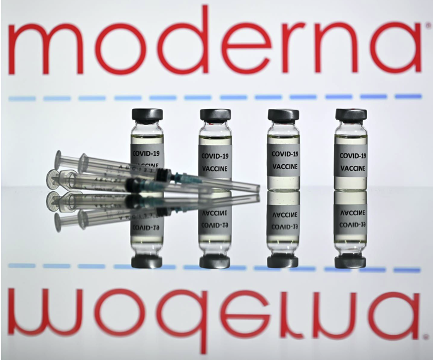
Innovation has been the defining feature in equipping the international community to fight back against COVID-19. As the race for a vaccine shaped much of last year and as vaccinations continue to ramp up across the world this year, it has become increasingly vital to contextualize the strategy of the different players in the intellectual property and pharmaceutical patent scene. In particular, mRNA vaccine development has facilitated the emergence of a new market for licensing deals and a novel context for enforcing patent rights in the post-pandemic world.
Moderna Inc and Pfizer-BioNTech’s mRNA vaccines set the stage for COVID-19 vaccine candidates with high efficacy and safety rates and a range of operational advantages over conventional vaccines. The technology behind mRNA vaccines have been at the forefront of the international fight against COVID-19. Beyond the COVID-19 context, the technology has the potential to shape the future for developing new vaccines effective against viruses such as HIV, which conventional vaccines have failed to address. As emphasized by Moderna Inc, mRNA technology has inherent advantages over traditional vaccines with regards to “safety, efficacy, speed of development, and production scalability and reliability.”
The mRNA Field:
The mRNA field rapidly expanded between 2005 and 2020 as key discoveries addressed persistent difficulties with rapid RNA degradation and the unstable delivery system. In 2005, Drew Weissman and Katalin Karikó, professors at the University of Pennsylvania, in collaboration with their research team, pioneered a revolutionary development in mRNA research. This work largely paved the path for the subsequent development of COVID-19 vaccines. The research team discovered that through exchanging one of the building blocks of mRNA molecules, the immune system would have greater capacity to detect RNA-lacking nucleoside modifications as a means to respond to bacteria or necrotic tissue. The Trustees of the University of Pennsylvania acquired patent rights (Patent #8,748,089) for their breakthrough in the field of mRNA technology.
The development of lipid nanoparticle technology— crucial for advanced non-viral gene delivery into the cell— was the second key discovery in mRNA research. The patent was awarded to Arbutus Biopharma for its ground-breaking research which was critical for improving the viability of mRNA vaccine candidates. Efforts to use mRNA for therapeutic purposes predate Moderna and Pfizer’s technology, but now biotech companies have permanently placed mRNA therapeutics on the map for the treatment of infectious diseases, cancer, and cardiovascular disease.
Moderna Inc’s Pledge:
In the early months of the pandemic, the rising concerns about intellectual property rights potentially hindering the timely development and administration of COVID-19 vaccines were addressed by Moderna Inc. In October 2020, Moderna Inc announced it would not enforce patent rights related to its vaccine during the course of the pandemic. The Massachusetts-based biotech company released a statement on intellectual property matters during the pandemic, emphasizing that there was a “special obligation” under the circumstances to use their resources to bring the pandemic to an end. The statement further emphasized that “while the pandemic continue[d], Moderna [would] not enforce [their] COVID-19 related patents against those making vaccines intended to combat the pandemic.”
In addition to this statement, Moderna announced that they would be willing to license their intellectual property for other biopharmaceutical companies to leverage and develop COVID-19 vaccines. Despite Moderna’s pledge, the company has underscored that such statements are inherently forward-looking within the meaning of the Private Securities Litigation Reform Act of 1995. Predictably, licensing remains on the table post-pandemic. The pledge does nothing to preclude the company from enforcing patent rights beyond COVID-19 at any time.
In recent months, activists have urged Moderna Inc to join the World Health Organization’s COVID-19 Technology Access Pool, which has called to action “the global community to voluntarily share knowledge, intellectual property and data necessary for COVID-19.” However, Moderna Inc’s “forward-looking” pledge highlights that enforcement will likely arise in the post-pandemic period, with the threat of suit having the potential to be leveraged in a mass of downstream licensing deals. As Moderna Inc’s pledge has attracted international acclaim, the company has simultaneously set the stage for a new mRNA market. Moderna Inc’s mRNA technology has resultantly paved a path for the company to reinstate enforcement rights post-pandemic and capitalize on licensing deals in the years to come.
